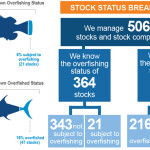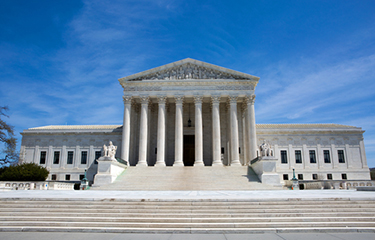The U.S. Supreme Court will listen to arguments on two challenges to NOAA Fisheries’ regulatory authority in January 2024, the court announced this week.
The court announced 13 October that it would take up the case of Relentless, Inc. v. the U.S. Department of Commerce, a lawsuit filed by Atlantic herring fishermen in 2020 challenging the government’s authority to require fishermen to pay for at-sea monitors on their vessels. The fishermen claim the monitors can cost as much as USD 700 (EUR 640) per day.
The U.S. First Circuit Court of Appeals ruled in favor of the Department of Commerce by relying on the Chevron deference – a judicial precedent that gives regulatory agencies broad authority to act without specific Congressional direction. Relentless responded by petitioning the Supreme Court to take up their case and roll back the Chevron deference, which the court has now granted.
The New Civil Liberties Alliance (NCLA) is representing the fishermen in the lawsuit.
“Our clients have persevered in this suit relentlessly, you might say, and we are eager to reverse the error of the lower courts and remove the unfair and unnecessary thumb on the scale for bureaucracy against citizens that Chevron deference inflicts on them when they face their government in court,” NCLA Senior Litigation Counsel John Vecchione said.
In May, the Supreme Court took up another Chevron challenge in Loper Bright Enterprises v. Raimondo that challenges NOAA Fisheries’ at-sea monitor order. Both Relentless and Loper will be argued before the court during its January 2024 session.
NOAA Fisheries is facing a bevvy of legal challenges from commercial fishermen attempting to curtail the agency’s regulatory authority.
Last month, The New England Fishermen’s Stewardship Association (NEFSA) sued the federal government over the regional fisheries management councils used by NOAA Fisheries, arguing that the bodies are unconstitutional and anti-democratic.
“When I was a vessel captain, the New England Fishery Management Council controlled every facet of my business, from catch quotas to conservation measures,” NEFSA CEO Jerry Leeman said. “Despite the significant power council members exercise, they are shielded from democratic control and political accountability. We live in a democracy and our fishery is a public resource. The public needs to be able to participate in its management and care.”
In June 2023, commercial fishermen from the Gulf of Mexico filed a similar lawsuit claiming that the councils represent an “unconstitutional regime.”
“A well-intentioned attempt at rule by enlightened experts has devolved, as usual, into a bureaucratic morass captured by narrow interests,” the fishermen said in the lawsuit.
Fishermen saw a legal victory earlier this year when the U.S. Court of Appeals for the Fifth Circuit found in favor of the Mexican Gulf Fishing Company in its case against the Department of Commerce. In that class-action lawsuit, the court struck down a NOAA Fisheries rule requiring 24/7 GPS-monitoring and electronic reporting of every trip. Fishermen were required to pay for the monitoring equipment.
The NCLA, which also represented the plaintiffs in Mexican Gulf Fishing Company v. Department of Commerce, said the Fifth Circuits ruling could be used to support challenges to the Chevron deference. All three cases involve NOAA Fisheries using ambiguous language to support their regulations.
“The Loper Bright case is similar to this in that there is silence in the statute, and when there’s silence, does the agency get to do what it wants?” Vecchione said in May. “I think it will be cited to Supreme Court in this upcoming Loper Bright decision.”
Photo courtesy of Shutterstock/Steven Frame







